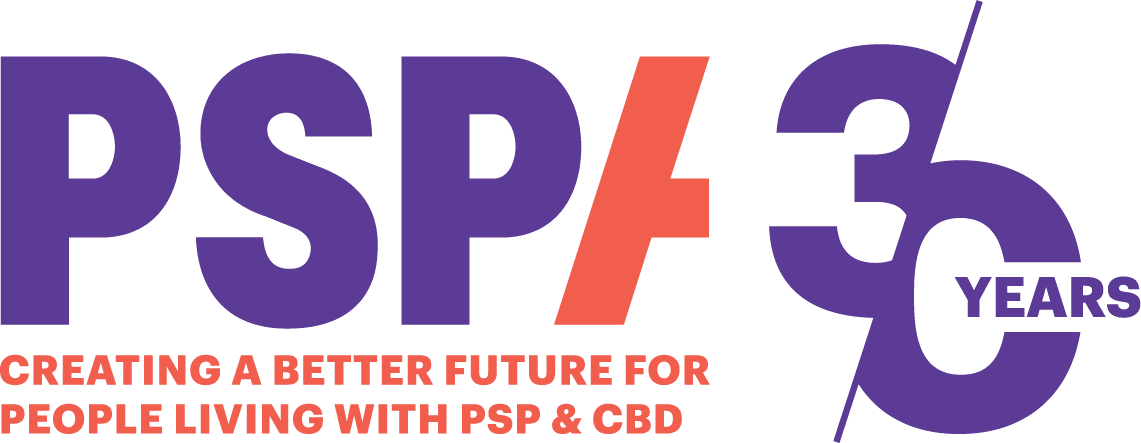Pam Fellows cared for her husband Tony as he battled prostate cancer and PSP. Here Pam shares Tony’s diagnosis journey and the support that helped her as she cared for her beloved husband.
My husband Tony was a lively, gregarious, intelligent and capable man with a high-flying career. He later chose to become a house husband and enjoyed our happy and loving marriage.
In March 2017, Tony was unfortunately diagnosed with prostate cancer. He was a very fit and active sporty man but due to the chemo and hormone treatment, he did put on a lot of weight at this time.
Following his chemo treatment, Tony started to lose some of his spatial awareness and I felt it was becoming a bit dangerous for him to drive. We were told this is something patients can experience from chemo so we didn’t think any more of it at the time.
Tony’s hand writing then started to become very small, almost illegible, and he didn’t recognise the change himself. We mentioned this to the oncologist who suggested we visit our GP just in case it was a sign of Parkinson’s. However, the GP chose not to investigate and said it was a combination of the chemo and old age.
A year later, in 2018, Tony had managed to shift the weight he had gained so we thought he was improving and getting over the impact of the chemo treatment. But then Tony began having balance issues. The first fall was quite bad, he broke his femur, but he had tripped so we just thought it was an accident and one of those things.
Recovery after the operation to repair the break was difficult though. Hospital staff struggled to get him up and out of bed, and nine days after the operation he was still struggling to stand. Tony was transferred to a rehab hospital, where he very much improved with full time physio after learning to walk again. Tony was in this hospital for nearly four weeks and then once home he continued with intense physio twice a week.
In 2019, Tony seemed much better. He was able to walk with a stick and an arm to hold. He still had difficulty getting up a number of times in the night, and I helped him with this.
Then he started to get stiff and feel more fatigued, so we went back to the GP as it seemed like Tony was ticking more and more of the typical Parkinson’s symptoms. The GP referred Tony to a neurologist after seeing how he poorly he walked and balanced.
The consultant we saw confirmed from Tony’s walking, speech and look, that he had Parkinson’s disease. Tony was prescribed Sinemet medication which did help him return to his old self, reducing the fatigue, albeit with some limited mobility.
During the pandemic, and with all appointments now taking place by telephone, I had to step in a few times to highlight changes in Tony’s mobility and behaviour. He’d just keep saying he was fine, never complaining about any of his symptoms. After two such discussions, Tony’s medication was increased and a slow release Sinemet prescribed for night time, however this had minimal effect.
By the end of 2019, the Sinemet seemed to have stopped working for Tony. His speech and language usage worsened and he was referred to an SLT to check his comprehension and although his logic seemed ok, I knew something wasn’t quite right. Tony’s ability to swallow started to deteriorate and he began to choke on food such as apples. When I raised concerns with the Parkinson’s nurse, the SLT was referred to and they recommended a softer diet which Tony did not agree to, so I just removed difficult food from his diet.
In January 2021, Tony fell again, backwards. After googling Tony’s symptoms, I spoke to the senior Parkinson’s nurse and for PSP to be investigated. We were seen the following day and PSP was diagnosed.
The consultant neurologist immediately referred Tony to the local hospice and we were told that Tony should get his affairs in order. It was thought that Tony had developed PSP up to three or four years prior but his symptoms had been attributed to his cancer, the after effects of chemo and the broken leg recovery. I was glad at this point that I had persisted and kept highlighting the changes I was noticing and had pushed for a face to face appointment despite the pandemic.
Tony’s PSP progressed quite rapidly then. His ability to swallow got worse, especially with liquids and taking any tablets became impossible. He developed a fixed gaze, which was such a shame as Tony was a big reader and this often kept him entertained during his illness. And, although his arms and legs were still strong, he couldn’t seem to coordinate them to stand. I used a Sarah Stedy to get him from the bed to the toilet and in and out of different chairs around the house. We eventually had a hospital bed delivered to our house, which was very useful.
I gave Tony lots of support, patience and understanding at this time. From doing research into PSP, I understood, he could no longer do the things he used to, and we were both adapting to the new normal.
Tony then stopped speaking, mainly relying on thumbs up or down to let me know what he wanted. He also started to catch chest infections and UTI’s more frequently too as a result of his decreased mobility and muscle control.
My all round care of Tony particularly during the night since 2019, finally exhausted me. At the gentle insistence of the local hospice they suggested a night sitter, which was a big help. I initially had someone in three times a week and then it increased to four.
Letting people help was something I was truly grateful for at this time although I was initially very hesitant to accept. It helped to give me back some quality of life, or in my case sleep, so I could be there for Tony during the day time. Once Tony became bed bound, I needed more help caring for him and the hospice along with the District Nurse organised carers three times a day.
Also, support from a local neurological OT meant we had access to lots of different aids to help Tony maintain his independence for as long as possible, and support me as Tony’s needs increased.
PSPA were a great help too, I rang them a number of times about his symptoms and I also gave the information leaflets to the hospice, as they had not heard of PSP before.
Our GP was really helpful. She read up on PSP to make sure she provided the best possible palliative care for Tony and popped in every two weeks to check how Tony was doing and ensure our care plans were in place. Our family and friends also rallied around, ensuring I wasn’t alone and had support.
Sadly, Tony died at home in September 2021. By this point he had stopped eating and drinking and was clearly in pain. I sat with him throughout his last night, holding his hand and talking to him. I took great comfort knowing that this was exactly what he had wanted at the end.

